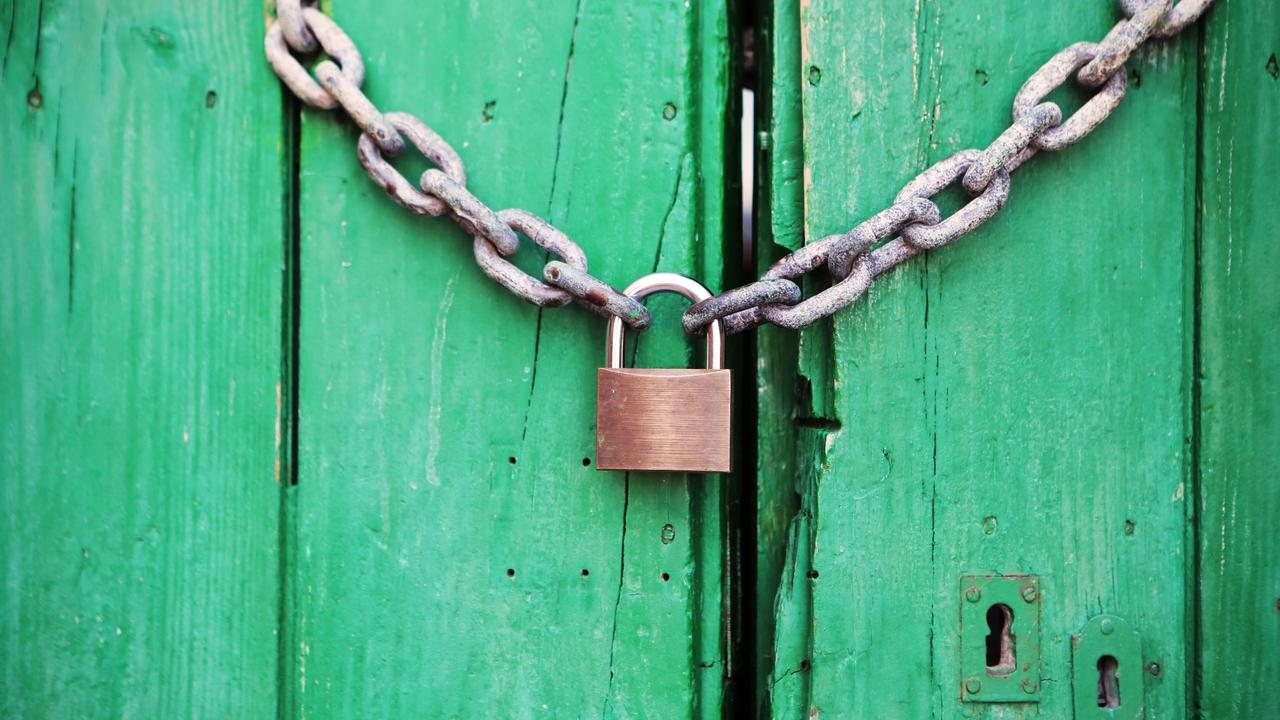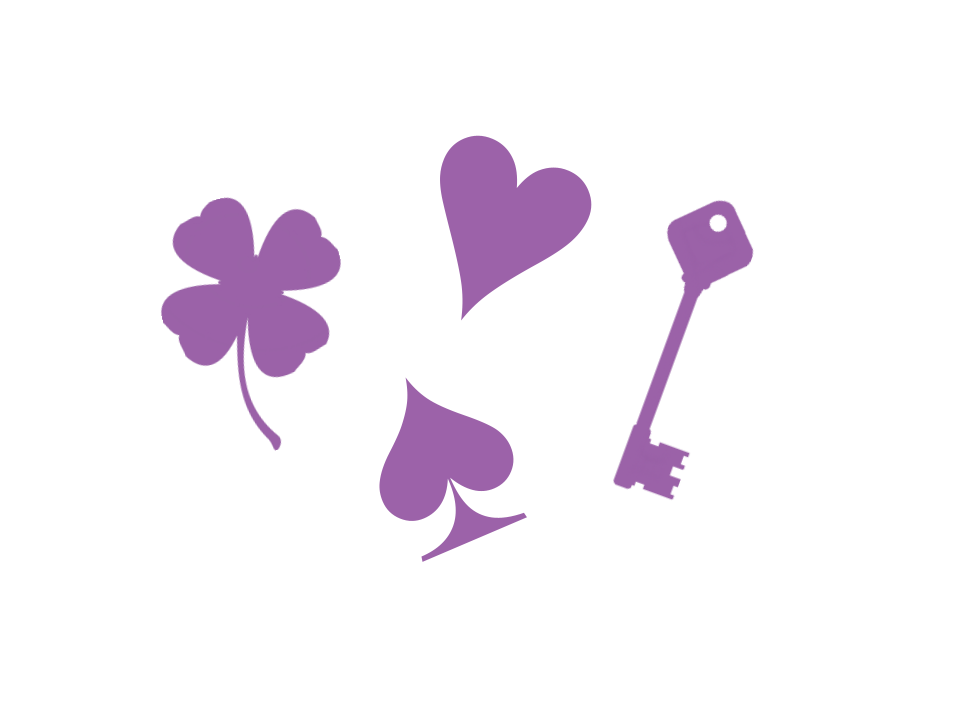
5 TIMES WHEN IT’S BEST NOT TO GET A READING
There are many good reasons to do or get a Lenormand reading: When we want another point of view, when we want a mirror for our inner wisdom, when we’re stuck and need to get the juices going, and many other reasons. But...
There are times when we should hold off doing or getting a reading.
It’s important to be aware of when our mindset and circumstances are less than ideal for a reading - and hold off on getting a reading at that moment.
It can take a bit of discipline to resist, but when you trust your inner wisdom and understand why these situations undermine the helpfulness of a reading, you’ll easily set your deck aside until you’re in a better place to gain insights from the cards.
So, what are those times when we’re best holding off?
1. WHEN WE KNOW THE ANSWER
When we already know the answer to a question, or when we already know what to do about an issue, there’s no need for a reading.
This might be an obvious one, but it might surprise you to know how many of us, Lenormand Readers, do readings for ourselves when we already know what the answer is.
I’d say that if you’re getting a reading, i.e. if you’re paying someone to do a reading for you, then you’re less likely to seek their services when you already know the answer or what to do. That’s because it’s an obvious waste of your money and you’ll prefer to save it for another question or concern.
Putting a price tag on your service - any service - often helps your customers choose wisely and invest themselves in the purchase. It’s a win-win.
How would you feel if you already knew the answer but then drew cards that contradict it?
Many of us will fall into the trap of believing that our Lenormand cards or our readings are not accurate, and we start to lose trust in them or in our ability to use them effectively.
This is very similar to ‘testing’ your cards for accuracy or ‘testing’ a Lenormand Reader’s skill. You know, the “impress me with your reading” type of challenge.
You might also fall into the trap of doubting your inner wisdom. I think this is worse!
But that is simply not how Lenormand or any deck or divination tool should be used.
Instead, when you already know the answer or you already know what to do about something, then just go with your wisdom, knowledge, and experience. You can be your own oracle!
2. WHEN WE’RE OVERLY INVESTED IN A QUESTION
If you read for yourself, you know how challenging it can be to read the cards objectively when you’re overly invested in the question. In this state of mind, you’re much more likely to bias your interpretation toward what you want to hear.
This is actually when it makes sense to get a reading from someone else even when you know how to read the cards.
Someone with a different head and heart, and who has nothing to do with your situation, can do your reading objectively. And because both of you know how to read the cards, you can interpret the cards together. It’s a fun collaboration!
But you also have the option of holding off on the reading. Admittedly, this can be a little tricky because it’s hard to stop ourselves from being invested in the question.
How do we detach ourselves from the question and its outcome?
This is where we start seeing that divination and our thought process are intertwined. And this is where we begin to understand how and why practicing Lenormand or any other divination tool is a tool for self-development and much less a game of fortune.
Of course, there are times when we want to have fun with our deck - that’s totally fine and you should have friendly fun with your deck. But we can’t have that kind of fun when we’re heavily invested in an issue.
With practice, you can give yourself space and time away from your Reader’s table to detach from the issue before you draw cards for it.
During this “detachment time”, it helps to think about the issue for yourself. Think about the range of possible outcomes and how you’d feel or respond to these different outcomes.
Ask yourself what would be the ideal outcome and use your thoughts to help you project your vision.
As you think about your issue from different angles, you’ll calm down about the issue and can approach your reading with a more sober mindset.
And when you’ve adjusted your perspective a little, head back to your table and draw your cards.
3. WHEN IT’S AN EMERGENCY
Don’t outsource your thought process when you’re desperate!
Why? Because when we’re in an emergency, we tend to be very vulnerable. And card messages could ‘land’ the wrong way.
Feeling vulnerable because we’re caught up in an emergency, especially a frightening one, has a significant psychic component: Our psychic defenses could be down - or thinned.
When our psychic defenses are down, we’re much less grounded and our ability to interpret messages is compromised.
In my personal practice, I generally turn down emergency questions. It is only when I have a working relationship with a client, and when they’re familiar with my approach that I might accept such a query. And then again, it’s usually a query for a short-term horizon as opposed to being on-the-spot.
So when you’re faced with an emergency, don’t stop everything to grab your deck! Stop everything to respond to the emergency!
After you’ve dealt with it and are more or less back to normal, think about it, consider what might happen next. And when you have a few thoughts in mind and are feeling reasonably well-balanced, then draw your cards.
And remember to breathe!
4. WHEN YOU’VE JUST RECENTLY DONE A READING
This is a common trap!
We all do this every so often, and it’s not the end of the world, BUT I caution against it when it comes to more serious questions.
Doing readings over and over, or even just a few times, is a sure way to decrease your confidence in your cards and in your reading skills.
It’s not a good thing. Not only is it bad for your Lenormand practice, but it’s bad for you!
When you confuse yourself about the many different messages that you're getting from the many different readings you’re doing, especially when it’s about a difficult issue, you will make yourself feel worse.
You must convince yourself to stop and let go for a while.
Practical tips you can do to contain this habit is to take note of your first reading. Then when you’re tempted to do another reading about the same issue, take out your notes and take out the cards you previously drew to place them in that same layout.
This way, you’d be engaging with your physical cards without doing a new reading, and you can contemplate them with a fresh mind.
If you did a nine-card portrait for your reading, you could pull one of its cards and run its extended cross. Titania’s extended cross is an amazing spread that uses all 36 cards of the deck. You place at its center a card that you consciously select out of your portrait, and then draw the remaining 35 cards around it.
This way, you can deepen one aspect of your reading without redrawing the original portrait.
But even if you don’t or can’t do an extended cross, you can still get quite a bit of satisfaction from just pulling out your previous cards and revising them in light of your present thoughts.
5. WHEN YOU DON’T REALLY CARE ABOUT THE ISSUE
This is a bit like already knowing the answer.
When you don’t really care about an issue you probably already know that it’s inconsequential to you - so you don’t really need to do a reading.
Doing a reading about something we don’t really care about often produces what Caitlin Matthews calls a mute reading.
A mute reading is one that doesn’t say much. The cards don't seem to make much sense or don’t express anything important.
Mute readings can happen even when we’re appropriately invested in a reading, and they can be frustrating. But when we care about an issue we simply make a better effort to interpret the cards, whereas when we don’t care as much, we won’t. So this is partly psychological.
But other reasons that we get mute readings is when our question doesn’t have a real focus or when the question is not well framed.
And issues that we don’t care much about are not likely to have a focus or be well-framed.
Another downside of asking about something we don’t care about is that it undermines our relationship with our cards. We need to treat our deck like a good friend, giving it the right amount of attention, time, and space.
Casual and careless readings start to infuse our cards with energies of unimportance and we’ll stop catching its insights or caring about them.

Want To Become A Lenormand Reader?
Lenormand Reader’s Certification Program is the only one of its kind, in size and in depth, to help you master the amazing Lenormand deck. This Program is filled with knowledge and practice accumulated through 20+ years of study and practice. It is organized into a real body of knowledge and delivered with best in class, online, on-demand video. Join the waitlist so you secure your spot when registration opens.
Join Lenormand Reader’s Certification Program
